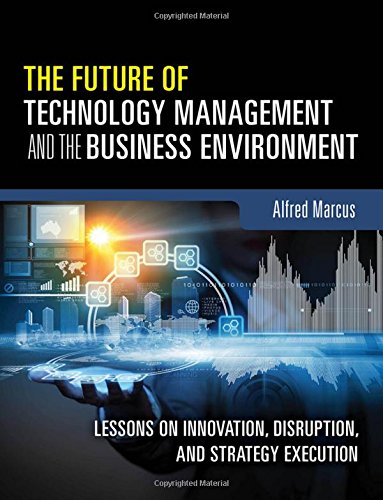

Most ebook files are in PDF format, so you can easily read them using various software such as Foxit Reader or directly on the Google Chrome browser.
Some ebook files are released by publishers in other formats such as .awz, .mobi, .epub, .fb2, etc. You may need to install specific software to read these formats on mobile/PC, such as Calibre.
Please read the tutorial at this link: https://ebookbell.com/faq
We offer FREE conversion to the popular formats you request; however, this may take some time. Therefore, right after payment, please email us, and we will try to provide the service as quickly as possible.
For some exceptional file formats or broken links (if any), please refrain from opening any disputes. Instead, email us first, and we will try to assist within a maximum of 6 hours.
EbookBell Team

5.0
28 reviewsANTICIPATE AND SHAPE TECHNOLOGICAL DISRUPTION...INSTEAD OF BEING VICTIMIZED BY IT
From biotech to nanotech to big data, the pace of technological disruption continues to accelerate. Now, leading business strategy expert Alfred Marcus offers powerful tools for anticipating technological change, and managing the threats and opportunities it poses.
Through insightful case studies, Marcus offers strategic advice for overcoming the pitfalls associated with deploying emerging technologies, or responding to others who use them to compete with you.
Marcus illuminates the ongoing interplay between technological change and wider societal trends, helping you recognize new opportunities created by these interactions, and maximize the upside–both for your company and the broader society.
Whether you’re an executive or strategist, technical professional or MBA student, this guide will sharpen your focus on the future so you can navigate radical technological-driven change–wherever it leads.
Emerging technologies offer immense promise for generating growth, profitability, and prosperity. But they face major obstacles to commercialization, and have environmental and social costs that must be carefully managed to maximize the benefit and mitigate the harm.
This book is about the foresight and strategic actions required for these new technologies to play a positive rather than negative role. Alfred Marcus illuminates their potential, reviews the risky decisions needed to transform potential into reality, and discusses how technologies might be used to ameliorate social problems rather than exacerbate them.
Marcus begins with insights about the strategy of technological innovation, using case studies to show why these innovations can fail, and offering methods for dealing with uncertain outcomes. Next, using examples such as the Deepwater Horizon oil spill, he illustrates how to better manage the dangers associated with technologies. He then turns to technology’s impact on three key societal conflicts: that between young and old, rich and poor, and the potential for scarcity and abundance in energy production. Finally, he focuses on how several pairs of companies, including Intel and AMD, Dell and Acer, and Amazon and Barnes & Noble, have managed technological disruption in their industries, and the difficult challenges they now face in overcoming these challenges.
Whether you’re an executive, manager, or student, you’ll gain powerful insights into innovation, strategy, execution, technology management, and the fastchanging business environment in which technological change takes place.
SOURCING THE NEXT SET OF BREAKTHROUGHS
Exploring the horizon in information technology, medicine, genetics, energy, and materials
PRACTICAL BUSINESS LESSONS FROM TECHNOLOGICAL FAILURES
Managing the uncertainties and dangers of technological investment and deployment
SITUATING NEW TECHNOLOGY IN A COMPLEX WORLD
How the social environment shapes technological impacts and opportunities
COPING WITH TECHNOLOGICAL DISRUPTION: OPEN-ENDED CASE STUDIES
How enterprises have responded to technological change, and what they might do next